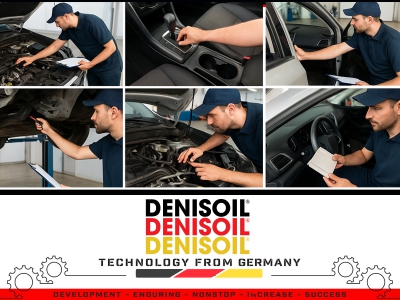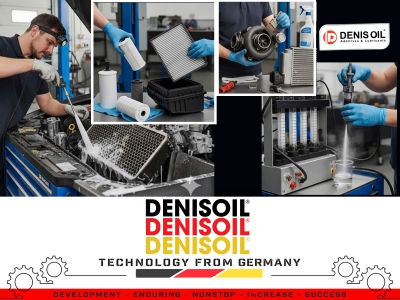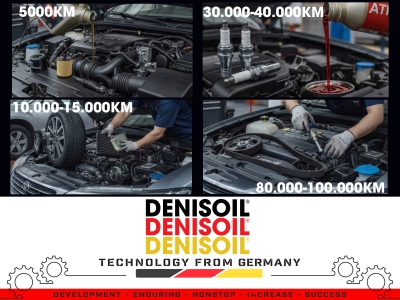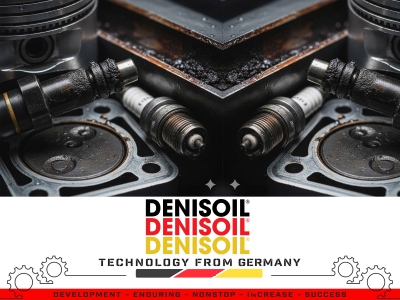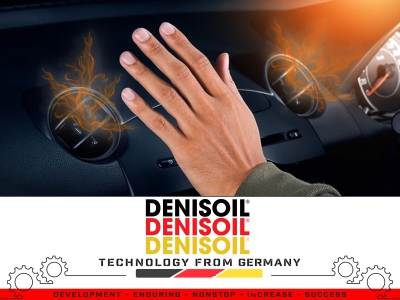
CAUSES OF ENGINE OVERHEATING IN CARS
Engine overheating occurs when the amount of heat generated during operation exceeds the cooling capacity of the entire cooling system. This is a dangerous condition that can cause severe engine damage if not addressed in time. Below are the main causes of overheating:
1. Incorrect Technical Intervention in the Engine
-
Modifying engine parameters improperly (increasing power, interfering with ECU, using incorrect spark plugs, etc.).
-
Incorrect ignition timing or air-fuel ratio (gasoline–air or diesel–air) leads to inefficient combustion, generating excess heat.
-
For diesel engines: incorrect fuel injection timing, clogged injectors, incorrect injection pressure.
-
Faulty spark plugs/injectors, malfunctioning fuel pumps, inaccurate engine sensors, or loose wiring cause incomplete combustion.
-
Unstable vehicle electrical system: overly high or low voltage reduces ignition efficiency and increases heat.
2. Harsh Operating Conditions
-
Continuous long-term driving or overloading the vehicle.
-
Driving in high-temperature conditions (scorching sun, hot pavement), prolonged uphill climbs, poor roads, dusty areas, or prolonged traffic jams.
-
Frequent acceleration and braking or prolonged maximum-speed driving prevent the engine from cooling down.
3. Ineffective Cooling System
Mechanical Failures:
-
Cooling fan not working (burned-out electric fan, jammed motor).
-
Malfunctioning water pump (damaged impeller, loose or broken belt).
-
Stuck thermostat not opening to release heat.
-
Leaky, clogged, or broken radiator.
-
Clogged cooling pipes due to debris, rust, or scale.
Coolant Issues:
-
Low coolant levels or excessively dirty/expired coolant.
-
Using the wrong type of coolant (e.g., tap water or mineral-rich spring water causing deposits).
-
Coolant containing corrosive substances that damage radiators and pipes.
Poor Maintenance:
-
Failure to clean radiators and cooling components regularly allows dirt and mud buildup, reducing heat exchange.
-
Neglected maintenance leads to airlocks, deposits, or corrosion inside the cooling system.
4. Inefficient Lubrication System
Lubricating oil accounts for up to 40% of the engine's cooling. Therefore, the following issues can significantly raise engine temperature:
Incorrect Oil Use:
-
Using oil with viscosity not matching the engine’s specification (too thick or too thin).
-
Using the wrong type of oil (recycled oil, low-quality oil, unknown origin).
-
Using oil lacking sufficient cooling, anti-wear, or detergent additives.
Poor Oil Maintenance:
-
Underfilling or overfilling engine or transmission oil.
-
Not changing oil on schedule; old oil loses lubrication and cooling ability.
-
Failure to check oil levels regularly (due to leakage or evaporation).
Transmission Oil Issues:
-
Using the wrong oil type (e.g., ATF in manual transmission).
-
Low transmission oil levels or failure to change oil on time.
-
Using overly thick gear oil increases friction and heat.
5. Exhaust System Problems
Improper exhaust system function may cause heat to build up in the engine:
-
Clogged exhaust pipes or catalytic converters.
-
Faulty oxygen or emission sensors miscontrol fuel quantity, causing incomplete combustion.
-
Stuck EGR valve reduces exhaust-based heat dissipation.
6. Aging Materials and Components
-
Blown or leaking head gasket allows coolant to enter combustion chambers, reducing pressure and proper heat transfer.
-
Aged gaskets, rubber hoses, valves, or seals cause oil/coolant leakage.
-
Malfunctioning temperature, pressure, or flow sensors prevent ECU from adjusting cooling correctly.
Conclusion:
Engine overheating results from a combination of causes—not only from the cooling system but also from lubrication, fuel system, driving conditions, electrical system, exhaust, and human intervention.
To prevent overheating:
-
Always perform regular maintenance as recommended by the manufacturer.
-
Frequently check oil and coolant levels.
-
Avoid unauthorized modifications if not technically proficient.
-
Use the correct types of lubricants and coolant; replace them on time.
-
If the vehicle shows abnormal heat signs, stop and inspect immediately—do not continue driving to avoid severe damage.
 Tiếng Việt
Tiếng Việt
 Chinese
Chinese
 English
English




